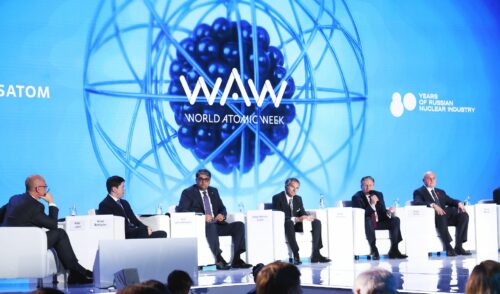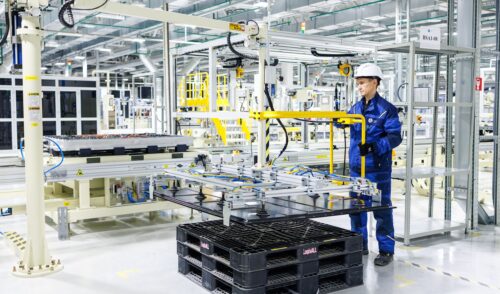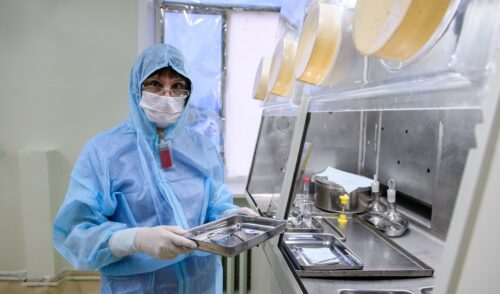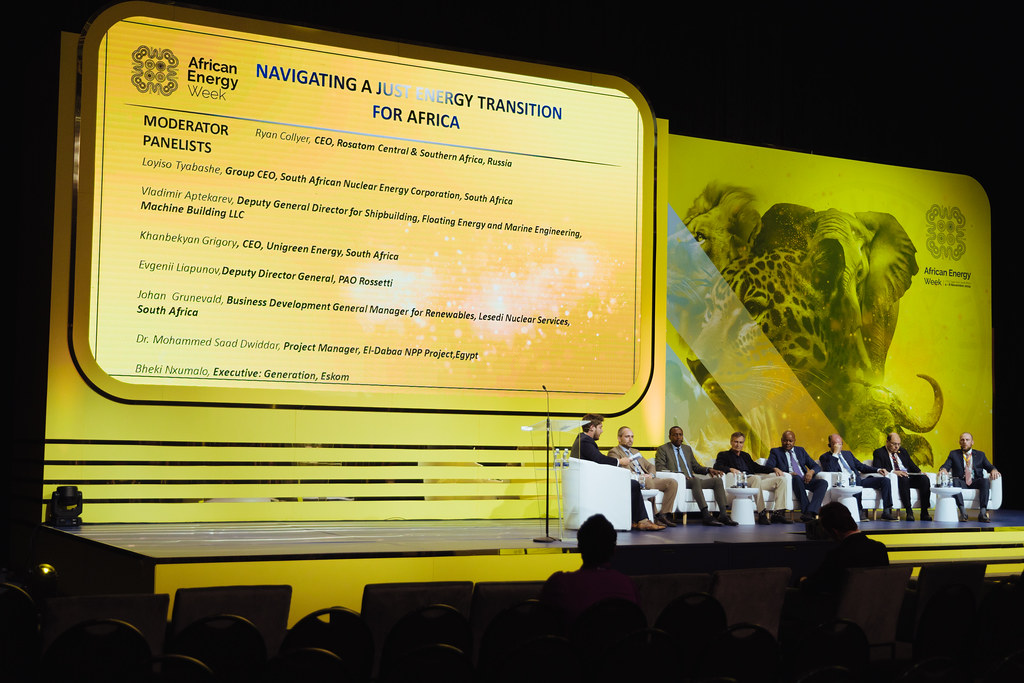
Reliable Partners
back to contentsRosatom is actively enhancing its cooperation with Central African countries. In the last couple of months alone, Russian nuclear engineers have spoken at major events in various countries of the region.
In early November, the South African city of Cape Town hosted the African Energy Week 2024 (AEW 2024), one of the most representative forums of the global energy industry. The event, this year themed as Invest in African Energies, is a traditional meeting place for African leaders and global energy industry players. The Russian delegation comprised representatives of energy and financial companies, including Rosatom.
Rosatom’s subsidiary TVEL and South African AllWeld Nuclear and Industrial met on the sidelines of the forum to sign a memorandum of cooperation on nuclear decommissioning and radioactive waste management.
The document provides for joint research, technological and commercial programs in the field of decommissioning nuclear power plants and other facilities. The parties agreed to develop infrastructure for radioactive waste management, including treatment, storage and disposal.
Rosatom also sponsored one of the forum’s panel discussions, entitled ‘From Vision to Action: Navigating a Just Energy Transition for Africa Through Green Innovation’. It focused on the balance between energy security, social and economic development, and global decarbonization goals. Experts discussed strategies for diversifying Africa’s energy mix, including through the integration of nuclear generation and solar-based energy storage systems, and gave consideration to the existing infrastructure vulnerabilities.
Visitors to Rosatom’s booth at AEW 2024 had an opportunity to take part in 360 degree virtual tours of the Novovoronezh nuclear power plant and the world’s first floating nuclear station. The tours were provided by detailed commentary on the project features and key equipment.
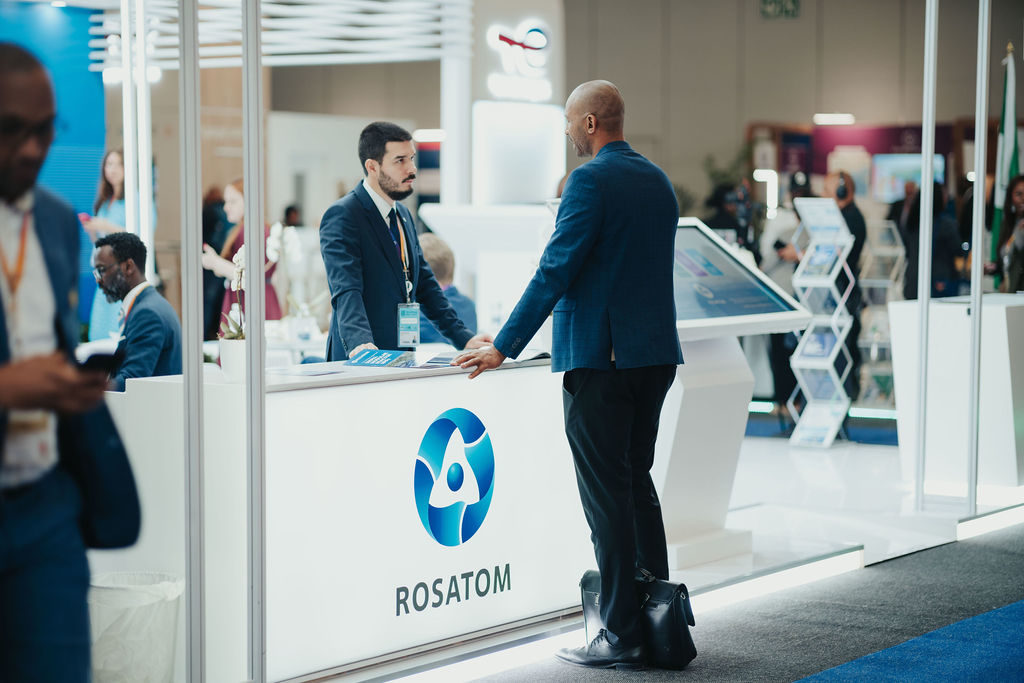 In late October, Rosatom experts took part in the business program of the 2nd Nuclear Science and Technology Conference in Namibia. Representatives from government, business and industry of different countries discussed the development of the nuclear industry in the African region. The delegates noted the importance of efficient uranium mining for the continent’s economic development. Tom Alweendo, Minister of Mines and Energy of Namibia, said that the mining sector’s contribution to the Namibian GDP had increased from 11.9 % in 2022 to 14.4 % in 2023, while purchases from local suppliers exceeded NAD 21 billion.
In late October, Rosatom experts took part in the business program of the 2nd Nuclear Science and Technology Conference in Namibia. Representatives from government, business and industry of different countries discussed the development of the nuclear industry in the African region. The delegates noted the importance of efficient uranium mining for the continent’s economic development. Tom Alweendo, Minister of Mines and Energy of Namibia, said that the mining sector’s contribution to the Namibian GDP had increased from 11.9 % in 2022 to 14.4 % in 2023, while purchases from local suppliers exceeded NAD 21 billion.
Representatives of Headspring Investments (Rosatom’s subsidiary running the Wings uranium exploration project in Namibia) spoke about the in-situ leaching (ISL) process. “The process we use is one of the cleanest and safest mining methods available worldwide. This approach reflects our commitment to both providing energy solutions and conserving Namibia’s unique environment for future generations,” said Kirill Egorov-Kirillov, Managing Director of Headspring Investments.
Ryan Collier, CEO at Rosatom Central and Southern Africa, noted that nuclear could lay a solid foundation for a sustainable energy infrastructure in African countries. “Rosatom has developed a wide range of technologies to achieve this goal, including small and large-scale nuclear generation solutions, which can be a reliable source of electric power. For instance, small modular reactors are fast to build and easily scalable, thus being an ideal solution for hard-to-reach regions or regions with a relatively low electricity consumption. We are delighted that Namibia is exploring the possibilities of nuclear power. This decision could make the country a major energy player on the African continent,” Ryan Collier commented.
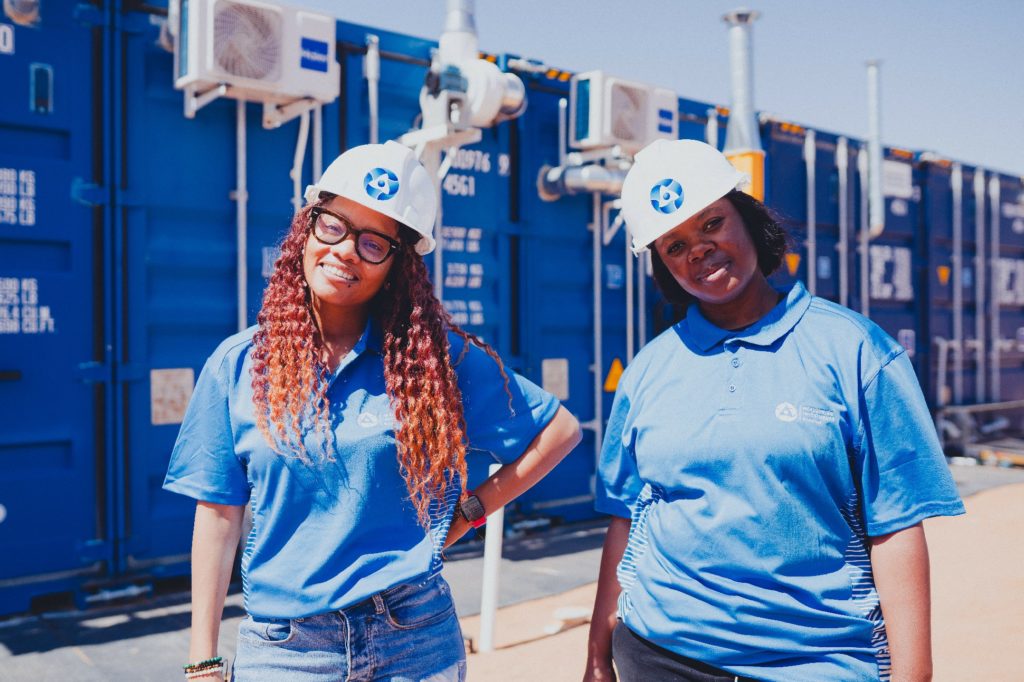 In mid-October, Russian nuclear specialists visited Uganda to take part in the International Youth Festival 2024, which brought together over 10,000 people at two venues. One of the sessions was dedicated to nuclear power. Its participants discussed how nuclear technology and solutions could contribute to the sustainable development of the continent. A special part of the program was a scientific stand-up, during which young researchers presented their findings.
In mid-October, Russian nuclear specialists visited Uganda to take part in the International Youth Festival 2024, which brought together over 10,000 people at two venues. One of the sessions was dedicated to nuclear power. Its participants discussed how nuclear technology and solutions could contribute to the sustainable development of the continent. A special part of the program was a scientific stand-up, during which young researchers presented their findings.
“We at Rosatom are deeply committed to engaging with young people. We continuously offer a wide range of educational programs for international students and young professionals, providing them with knowledge across various scientific fields. We support the aspirations of talented young people as their success is important to us. Our goal is to help them learn, grow and make meaningful contributions to society,” Ryan Collier said.
In early October, Nikolai Spassky, Deputy Director General for International Relations of Rosatom, met with Yakuba Zabre Guba, Minister of Energy, Mines and Quarries of Burkina Faso. The parties aligned their views on the current and prospective agenda of bilateral cooperation, having discussed the development of nuclear infrastructure, public acceptance of nuclear power, nuclear and related training programs for Burkina Faso students, and potential joint projects in the renewable energy sector.


